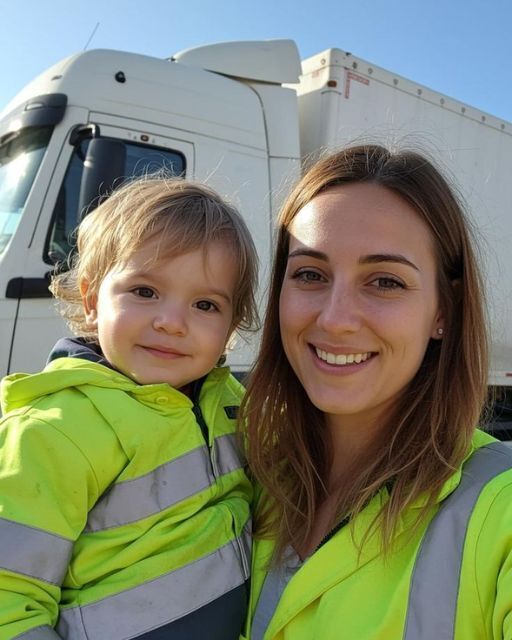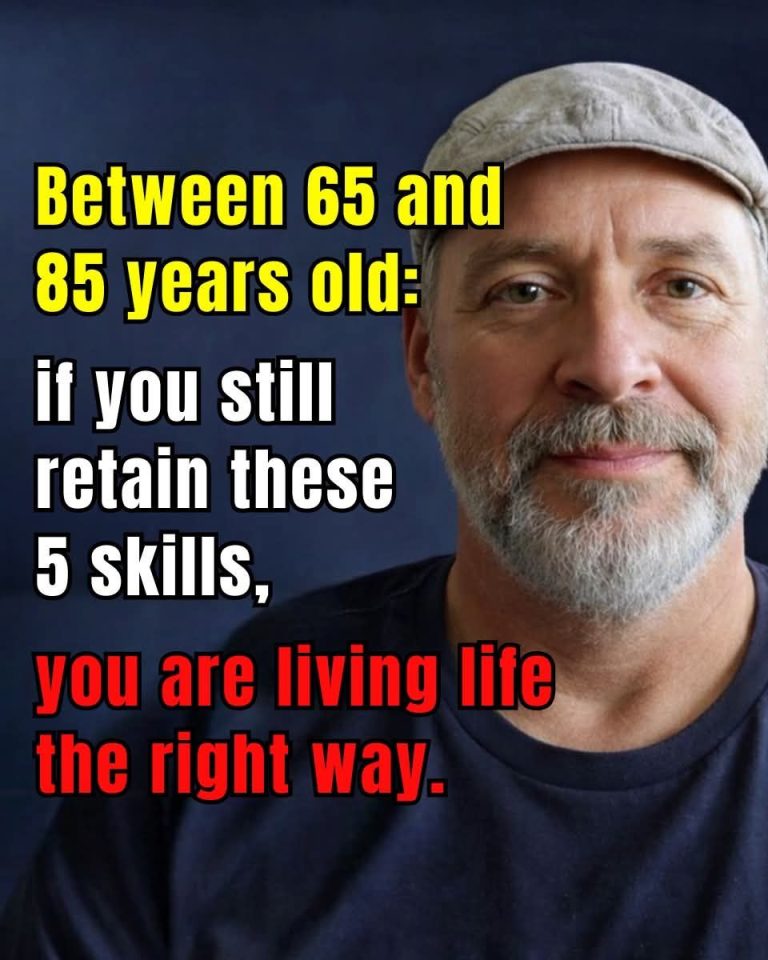
I’ve been driving freight since I was nineteen, and when childcare got too expensive, I just strapped a car seat into the rig and brought Micah with me.
He’s two now—sharp, stubborn, and already knows how to radio-check better than some new hires.
It’s not exactly conventional, but he loves the road. The noise, the movement, the steady rhythm of tires on asphalt. And honestly? Having him close helps with the loneliness.
We wear matching hi-vis jackets, share snacks, and sing the same off-key songs every stretch of highway. Most days blur together—truck stops, delivery docks, refueling routines.
But last week, right outside Amarillo, something happened.
We’d stopped at a rest area just before sunset. I was checking the trailer straps while Micah sat on the curb, humming to himself and playing with his toy dump truck.
Then he looked up at me—out of nowhere—and said, “Mama, when is he coming back?”
I blinked. “Who, baby?”
Micah pointed toward the cab. “The man who sits up front. He was here yesterday.”
I froze.
Because we’d been alone. We’re always alone. I don’t let anyone else in that truck. Ever.
I knelt beside him. “What man, Micah?”
He didn’t seem scared. Just matter-of-fact. “The one who gave me the paper. He said it’s for you.”
I checked the cab. Nothing obvious.
But later, when I opened the glove box to get my logbook, there it was.
A folded piece of paper.
Micah’s name written across the front.
And inside—
A child’s drawing.
Crayons on rough paper—three stick figures holding hands: one tall, one short, and one in the middle wearing a little orange cap. That cap looked just like the one Micah always wore on chilly mornings.
Underneath the drawing were three words, scrawled in uneven handwriting:
“He never left.”
My breath caught. The air in the cab felt heavier suddenly, like something unseen was pressing down on my shoulders.
“Micah,” I said softly, turning in my seat, “what did the man look like?”
He shrugged. “He had a hat like yours. But old.” He paused, frowning as he thought. “He smelled like the inside of Grandpa’s truck.”
I swallowed hard.
My dad—Micah’s grandfather—had driven trucks for forty years before he passed away last summer. Micah had barely been a year old then. He’d only met him once.
And yet… the description chilled me to the bone.
“Did the man say anything else?” I asked.
Micah looked at me like I was the one being silly. “He said, ‘Tell Mama to stop driving so hard. She’s already made it.’”
I sat in silence for a long time, staring at that little crayon drawing.
That night, I didn’t drive. I parked at the edge of the lot and climbed into the sleeper with Micah, pulling him close.
The road was quiet outside.
But something told me we weren’t alone.
The next morning, I found another slip of paper tucked into the side pocket of the driver’s seat. It hadn’t been there before. It was older—yellowed edges, oil-smudged fingerprints.
It was one of my dad’s old route logs.
I recognized his handwriting instantly. Bold, blocky letters. Notes in the margins like “good diner here” and “watch that steep hill.”
There, next to a scrawled map of a stretch of Route 66, he’d written:
“Take it slow, kid. The road is only half the story.”
I stared out at the rising sun.
Maybe Micah hadn’t imagined him after all.
Maybe the road doesn’t forget those who loved it most.
And maybe—just maybe—my father hadn’t left us completely.
Not yet.



